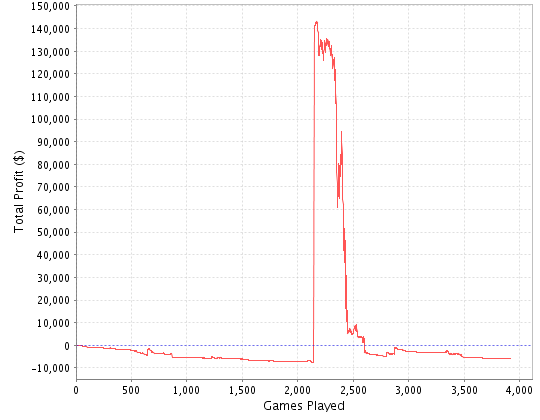“It is impossible to understand the power of civilization without giving up your instincts.” – Sigmund Freud 
There are many different games where we need to apply a poker mindset. Naturally, we make wrong decisions in areas we encounter. One reason weak players make many mistakes at the poker table is that many decisions in poker require responsibility or intense thinking, and these decisions are very different from those they need to make in everyday life. In fact, many who want to play poker have to go against their instincts.
To understand poker, we need to identify those areas where we need to adopt a slightly different mindset to achieve better results.
Actions and Reactions
 Human nature is to seek a connection between actions and their resulting outcomes (reactions). Trying to find this connection is where a person begins to learn. These connections can be very small and obvious, for example, if you prick a balloon with a pin, it bursts. Or it can be the consequence of an action, say you catch someone lying, so you will trust that person less in the future. One of the keys to human development is to find and internalize as many of these connections as possible. Everything we do every day is based on previously understood actions and their resulting reactions.
Human nature is to seek a connection between actions and their resulting outcomes (reactions). Trying to find this connection is where a person begins to learn. These connections can be very small and obvious, for example, if you prick a balloon with a pin, it bursts. Or it can be the consequence of an action, say you catch someone lying, so you will trust that person less in the future. One of the keys to human development is to find and internalize as many of these connections as possible. Everything we do every day is based on previously understood actions and their resulting reactions.
One huge advantage of observing these reactions is that we can change something based on them. If your action does not produce the desired reaction, then next time you can try changing the action and see if the reaction differs. For example, if you pass a soccer ball to a friend and he fails to stop it, next time you will pass the ball more gently. This may cause a different reaction, and it may happen that you pass the ball too gently and it doesn't reach your friend, so next time you will try differently again, and so on.
When all these things come into poker, finding the connection between action and reaction (or in this case between decision and result) can be much harder. Every action taken can have a wide range of outcomes, some favorable, some unfavorable. All this makes the learning process much harder. Applying the same learning methodology in poker as in kicking a ball can cause many problems.
Some poker scenarios can be solved mathematically. For example, in limit hold'em, it is very easy to prove that it is almost always correct to call one bet with a flush draw on the flop. Many situations are much harder to solve mathematically, such as whether it is better to fold, call, or raise with 66 from middle position. In this situation, there are many other influencing factors. In these cases, you can learn from more experienced players or simply from trial and error.
The problem with learning from trial and error is that if you choose an action and get a negative result, you will instinctively change the action to get a better result. You need to be careful because a good decision can bring a negative result, and a bad decision can bring a positive result. For example, we raise pre-flop with AA and lose a big stack of chips when the opponent hits a set. Or, let's say we call a pre-flop raise with K-9 and beat the opponent's A-K when the cards come K-9-6. These are just a few examples, but the principle is the same for many decisions you make at the poker table.
Being a winning player does not mean you are playing well. Conversely, losing does not mean you are playing badly.
It is very important for a poker player to understand this. Otherwise, you may stop changing bad decisions in the game and continue making them because it will benefit short-term results. In such cases, the player with AA will play too cautiously next time, and the player with K-9 will reform his opinion and think that calling with K-9 is good.






